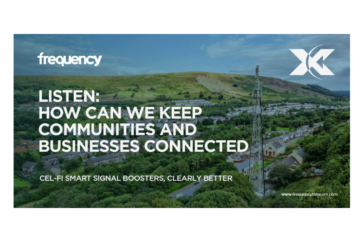15% of the population are excluded from the government’s Gigabyte turbocharge broadband roll-out and may suffer from poor mobile and internet connectivity for years to come.
More than ever, people rely on fast and reliable broadband for work, entertainment and accessing goods and services. The surge in home working and homeschooling during the coronavirus pandemic highlighted the need for improved connectivity across the UK. The pandemic harshly exposed how the digital divide deepened economic inequality which disproportionately impacted rural homes and businesses, low-income families, and SMEs.
Government Schemes To Improve Internet Connectivity/Fibre Broadband And Speed Across The UK
In June 2019, the government announced its ambitious plans to bring gigabit-speed broadband connectivity to all premises across the country UK by 2025. The statement said, “Gigabit-capable broadband connections offer the fastest and most reliable speeds available. They pave the way for new and unexpected social benefits alongside jobs and economic growth over the coming decades and revolutionise rural communities by giving people the freedom to live and work more flexibly.”
However, in November 2020 at the height of the COVID-19 pandemic, the government adjusted their commitment to reach only 85% of premises over the next five years. This comes after the roll-out of the turbocharged network has been plagued with a litany of government failures as outlined by the government spending watchdog (PAC).
Industry leaders and MPs are concerned that the delay in the roll-out may hamper the UK’s ability to create new jobs and economic opportunities after the pandemic. The call for clear timelines in each area to enable businesses and individuals to plan for their digital future. It is yet to be seen if and when rural users finally get gigabit broadband, they will enjoy the same choice of providers and protections as their urban counterparts.
As a result, 15% of UK homes and businesses, particularly in rural areas, will be left with slow and expensive broadband for many years to come.
What Is The Alternative To Traditional Broadband?
Cel-Fi mobile signal boosters is a cost-effective and quick-to-install solution that can provide a stable and reliable mobile connection for voice and data. It consists of three units: a reception antenna, a signal booster, and an internal rebroadcast antenna. The external antenna will collect the best mobile signal from outside and transmit it to a mobile signal booster unit which strengthens the signal and retransmits it internally.

Cel-Fi products are the ONLY mobile signal boosters available on the market that are licence-exempt and fully comply with the regulatory requirements of Ofcom’s UK Interface requirement 2102 (IR2102) (UK) and ComReg S.I.No.283 of 2018 (Ireland).
We have partnered with Connecting Somerset and Devon to provide them with mobile signal boosters to improve not only mobile signal for clear voice calls, but to provide residents and businesses with a robust mobile data solution where broadband is not yet available.
Contact us today to find out how we can help your home or business stay connected, without the need for broadband.
What Is The ‘Project Gigabit’?
The Department for Digital, Culture, Media and Sport (DCMS) has pledged £5bn to provide infrastructure for gigabit-capable broadband in rural and hard-to-reach areas where broadband is costly to build. Their aim is to increase the full-fibre coverage across the UK as we are currently the worst in Europe.
The government-funded project will prioritise areas that currently have slow connections and which would otherwise have been left behind in commercial broadband companies’ rollout plans. Over the next few years, subsidised by government contracts will be awarded to broadband providers until the UK is fully covered.
With the cost of upgrading connections in the most rural areas can be up to £100,000 or more, the scheme enables residents and/or businesses in the same location to group together to combine the value of vouchers to fund the upgrade.
The scheme offers rural premises government vouchers worth £1,500 per home and £3,500 per SME to support the cost of gigabit-level fibre installation to people’s doorsteps.
They have just released an additional £210m for an extension of their rural Gigabit Voucher scheme and £110m to connect up to 7,000 rural GP surgeries, libraries and schools.
Find out more on the website: https://gigabitvoucher.culture.gov.uk/
How Does It Work?
- Residential properties can apply for a voucher with a maximum value of £1,500
- Eligible SME can claim a voucher of up to £3,500
- Vouchers are only available rural areas, use the postcode checker for eligibility
- Your existing connection needs to be below 100 Mbps
- Single households cannot apply. Two or more residents and/or eligible businesses get together to combine their vouchers towards the shared cost of installation
- Vouchers cannot be used in conjunction with the broadband USO
- New connections should at least double your existing speed, so if you have 60 Mbps FTTC and get FTTP installed you would need to install a service of at 120 Mbps or faster
- Minimum speed of the new connection must be above 30 Mbps
Problems With The Scheme
The uptake for the voucher scheme has been reportedly low. Only 44,792 vouchers applications were received up until March 2021. Critics say that the application process is too complex and that the physical roll-out of the infrastructure too slow. There is a lack of general awareness of the scheme and the higher costs associated with gigabit-capable services have further stifled the uptake.

What Is Ofcom’s Universal Services Obligation (USO)?
The Universal Services Obligation (USO) for broadband is a UK-wide measure intended as a “safety net” to deliver broadband to those premises that do not have access to a decent and affordable connection.
Households and businesses with broadband speeds below 10mbps will be able to request decent connections under the USO. The definition of a decent connection is one that can deliver 10 Mbps download speed and 1 Mbps upload speed. Ofcom has defined an affordable connection as one that costs less than £45 per month.
The USO provides a legal right to request a decent broadband connection, up to a cost threshold of £3,400. BT has been designated as the Universal Service Providers responsible for fulfilling requests from eligible consumers.
How Does It Work?
Residents and businesses are eligible for the USO if:
- they do not have access to a decent broadband connection (10 Mbps download speed, 1 Mbps upload speed and other specified quality parameters); or
- if the only service available that can provide the minimum criteria costs more than £45 per month; and
- the property is not due to be connected to a publicly funded roll-out scheme within 12 months; and
- the connection will cost no more than £3,400 to build (or the customer has chosen to pay the excess above that amount).
Problems With The Scheme
From the outset, concerns were raised that the cost of building improved broadband infrastructure would far exceed £3,400. One customer reported that their quote was £1.1m to get FTTP (fibre to the premise) installed. Ofcom is currently investigating whether BT / Openreach are fulfilling their obligation to provide broadband services under the USO. Often, the solution is 4G broadband which is only reliable if you have a stable mobile connection in your area.
Find out more about the scheme: https://www.ofcom.org.uk/phones-telecoms-and-internet/advice-for-consumers/broadband-uso-need-to-know
What is The Shared Rural Network?
The Shared Rural Network, developed by the UK’s four mobile network operators and Government, will deliver 4G coverage to 95% of the UK by 2026, enabling rural businesses and communities to thrive.
The programme will make 4G mobile broadband available to 95% of the UK. It is guaranteed to provide coverage to 280,000 premises and 16,000km of roads. Indirect improvements include a boost to ‘in car’ coverage on around 45,000 km of road and better indoor coverage in around 1.2m business premises and homes, boosting productivity and investment in rural areas.
The project consists of MNOs investing to extend their coverage by upgrading their existing networks, working together on shared infrastructure and building new sites, with new government-funded masts being built to target areas with no mobile coverage from any operator. Through its work, the SRN will increase the parts of the UK that get mobile service from all operators from 66% to 84%, improving consumer choice.
The deal will lead to increases in coverage in some areas by more than a third, with the biggest coverage improvements in rural parts of Scotland, Northern Ireland and Wales.
It follows moves by the government to improve digital infrastructure by making it easier and cheaper for the private sector to deploy faster broadband to the most commercial areas of the country, new legislation to make it easier for telecoms firms to connect blocks of flats, and plans to mandate gigabit-capable connectivity in new build premises.
Fourth-generation mobile services, known as 4G, give people faster access to the internet and make it much quicker to surf the web on mobile, tablets and laptops. Rural businesses will be able to work more efficiently, for example by accepting electronic payments, being in better contact with potential and existing clients, and facilitating flexible and remote working for their employees.
Find out more on the website: https://srn.org.uk/





